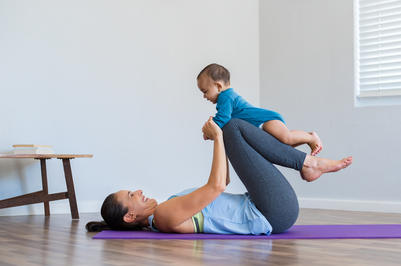
For years, researchers have been publishing studies about the effectiveness of an intervention that produces positive outcomes in nearly every arena of health and wellbeing. They have discovered that it boosts your immune system, lowers blood pressure, makes you feel more optimistic, decreases depression, improves your love life, and helps you cope with even the most life-threatening crisis.
Plus, it’s available to everyone, with no physical effort, and it’s totally free.
Interested? You should be. This magic therapy is gratitude, and you can start collecting its benefits today.
Gratitude and health
 Feeling thankful can improve your health in both direct and indirect ways. Some research shows that the experience of gratitude can induce a sense of relaxation, improve the immune system, and decrease blood pressure.
Feeling thankful can improve your health in both direct and indirect ways. Some research shows that the experience of gratitude can induce a sense of relaxation, improve the immune system, and decrease blood pressure.
But grateful people also tend to cultivate better health habits, like eating more nutritious food, exercising, and avoiding risky behaviors. In addition, the optimism that stems from gratitude can create a healing attitude: research shows that people with optimistic attitudes have better outcomes after medical procedures.
Gratitude and joy
Robert Emmons, an internationally renowned scientific expert on gratitude, has found that acknowledging the good in life has a tendency to amplify positive emotions, such as joy and contentment, because it helps us slow down. “I think gratitude allows us to participate more in life,” he says. “We notice the positives more, and that magnifies the pleasures you get from life.” Consider the last time you had a good cup of coffee—did you pay attention to the warmth of the cup on your hands, or the feeling of pleasure as you took the first sip? It’s easy to ignore these small moments of positivity in our day as we rush from one activity to another, but stopping to appreciate them makes them more powerful.
Gratitude and resilience
 Practicing gratitude can also make you better equipped to handle the difficulties of life that inevitably arise. In fact, according to Emmons, it’s an essential part of the process of healing from trauma. Even despair can be mitigated by the experience of appreciation for the good, however slight it might be. Many survivors of the Holocaust, when asked to tell their stories, remember most strongly the feelings of gratitude for food, shelter, or clothing that was offered to them. This sense of thankfulness for the small blessings helped them maintain their humanity despite experiencing a horrific tragedy. Many people with life-threatening illnesses also report decreased distress and increased positive emotions when they practice gratitude.
Practicing gratitude can also make you better equipped to handle the difficulties of life that inevitably arise. In fact, according to Emmons, it’s an essential part of the process of healing from trauma. Even despair can be mitigated by the experience of appreciation for the good, however slight it might be. Many survivors of the Holocaust, when asked to tell their stories, remember most strongly the feelings of gratitude for food, shelter, or clothing that was offered to them. This sense of thankfulness for the small blessings helped them maintain their humanity despite experiencing a horrific tragedy. Many people with life-threatening illnesses also report decreased distress and increased positive emotions when they practice gratitude.
Recent MRI studies have mapped the gratitude circuitry in the brain, which activates a sense of reward, fairness, and decision-making—all aspects that help facilitate survival and post-traumatic growth.
10 tips to fit gratitude in your life
Ready to begin? Here are ten ways to become a more thankful person.
Every day, say aloud three good things that happened.
This can be a fun activity to do with your kids when you tuck them in, or around the dinner table with family, but it’s also extremely powerful to express gratitude aloud when you’re alone.
Keep a gratitude journal.
Jot down the small things from your day that mattered to you, like the few minutes of quiet time you had on your drive to work, or the fact that this afternoon’s rain storm didn’t flood your basement. If you’re having a particularly rough day, you can look back through the pages of accumulated blessings in your life.
Say thanks to your partner.
Couples who express gratitude toward one another set up a powerful feedback loop of intimacy and trust, where both partners feel as if their needs are being met.
Cool a hot temper with a quick gratitude inventory.
One of the quickest ways to dispel the energy of a stormy mood is to focus your attention on what’s good. So when you’re about to lash out at someone, take a moment to do a quick inventory of five things you’re thankful for in the moment. It could be your good health, clean air, or even the recent switch to a cheaper cell-phone bill—these details will help you relax and avoid saying something you’ll later regret.
Thank yourself.
Gratitude doesn’t always need to be focused on what other people have done for you! Make sure you give yourself a thank-you for the healthy habits you’ve cultivated in your own life, such as eating plenty of veggies or giving yourself enough time for rest each night.
Use technology to send three gratitude messages a week.
Find yourself tethered to your cell phone or the internet for hours each day? Harness the power of this technology to send out some good vibes, such as a text or Facebook comment, to tell your friends why you appreciate them.
Savor the good moments.
If you notice you’re feeling happy, stop what you’re doing and pay attention for a few minutes. Notice exactly how you feel, including the sensations in your body and the thoughts you’re having. Later, when you’re trying to inspire gratitude, you can remember this moment and experience the benefits all over again.
Check for silver linings.
Even the most difficult life challenges come with some benefit—you just have to look to find them. Being sick draws the compassion of friends. Making a mistake teaches you a lesson. When things feel hard, ask yourself: What’s good here?
Look outward, not inward.
Robert Emmons says people are more likely to feel grateful when they put their focus on others, rather than getting caught up in their own inner narratives about how things should have gone. Empathy for others can trigger a sense of gratitude, and people who have an outward focus tend to experience stronger benefits.
Change your perspective.
If you struggle to come up with something to feel grateful for, put yourself in the shoes of someone who is experiencing misfortunes greater than your own. Recalling a colleague who has a debilitating physical condition, for example, will inspire gratitude for your own healthy body, which you may have taken for granted otherwise.
Emmons, R. (2010 November 16). Why gratitude is good. Greater Good. Retrieved from http://greatergood.berkeley.edu/article/item/why_gratitude_is_good.
Emmons, R. (2013 May 13). How gratitude can help you through hard times. Greater Good. Retrieved from http://greatergood.berkeley.edu/article/item/how_gratitude_can_help_you_through_hard_times.
Emmons, R.A., McCullough, M.E. (2003). Counting blessings versus burdens: An experimental investigation of gratitude and subjective well-being in daily life. Journal of Personality and Social Psychology; 84(2), 377-389.
Emmons, R.A., Stern, R. (2013). Gratitude as a psychotherapeutic intervention. Journal of Clinical Psychology; 69(8), 846-855.
Fox, G.R., Kaplan, J., Damasio, H., Damasio, A. (2015). Neural correlates of gratitude. Frontiers in Psychology; 6.
Gordon, A.M., Impett, E.A., Kogan, A., Oveis, C., Keltner, D. (2012). To have and to hold: Gratitude promotes relationship maintenance in intimate bonds. Journal of Personality and Social Psychology; 103(2), 257-274.
Heubeck, E. (2006). Boost your health with a dose of gratitude. WebMD. Retrieved from http://www.webmd.com/women/features/gratitute-health-boost.
Lambert, N.M., Fincham, F.D., Stillman, T.F. (2012). Gratitude and depressive symptoms: The role of positive reframing and positive emotion. Cognition & Emotion; 26(4), 615-633.
O'Leary, K., Dockray, S. (2015). The effects of two novel gratitude and mindfulness interventions on well-being. The Journal of Alternative and Complementary Medicine; 21(4).
Ruini, C., Vescovelli, F. (2013). The role of gratitude in breast cancer: Its relationships with post-traumatic growth, psychological well-being and distress. Journal of Happiness Studies;14(1).


